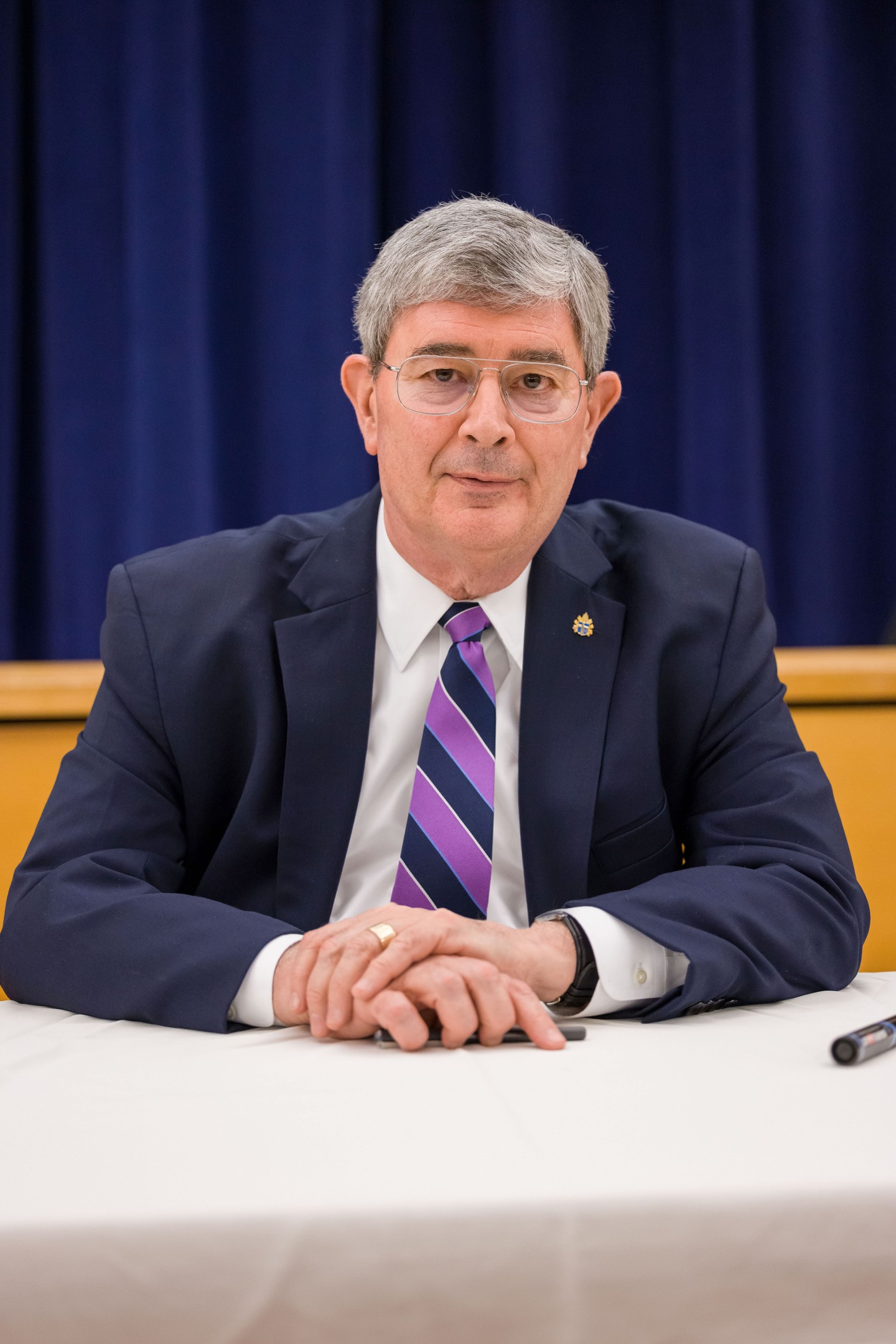As Americans celebrate Thanksgiving Day on November 23, my Catholic fellow citizens might take a moment to give thanks for a 120-year-old apostolic constitution that virtually no one remembers—but that is re-asserting its relevance in this troubled Catholic moment.
For centuries, the popes exercised sovereignty over a large swath of central Italy known as the Papal States. Among the many ways in which this arrangement impeded the Catholic Church’s evangelical mission, the fact that the pope was a temporal sovereign with lands to defend inevitably enmeshed the Church in European power politics. This untoward entanglement led to the ius exclusivae (right of exclusion), by which the Catholic monarchs of Spain, France, and Austria claimed the right to veto a candidate for the papacy that this, that, or the other one disliked.
The ius exclusivae was never formally acknowledged by the Church, but Euro-politics were such that, on several occasions in modern times, the conclave electing a pope felt that it had to take heed of a monarchical black ball. Thus in the conclave of 1823, called to elect a successor to Pope Pius VII, Emperor Francis I of Austria scotched the candidacy of Cardinal Antonio Severoli, leading to the election of Cardinal Annibale della Genga as Leo XII. Seven years later, during the month-and-a-half-long conclave of 1830–31, King Ferdinand VII of Spain vetoed the candidacy of Cardinal Giacomo Giustiniani (a former nuncio to Spain who had gotten into bad odor with Ferdinand’s queen), resulting in the eventual election of the Camaldolese monk and prefect of Propaganda Fide, Cardinal Mauro Cappellari, as Pope Gregory XVI.
Then, in 1903, Cardinal Jan Puzyna of Cracow pronounced the veto of the Austro-Hungarian Emperor Franz Joseph on the leading candidate, Cardinal Mariano Rampolla, whose accommodating approach to the French Third Republic the Habsburg emperor didn’t appreciate, France being on the other side of the European alliance system at that time. The cardinal-electors were unhappy, but the exercise of the ius exclusivae finished Rampolla as papabile and the electors eventually turned to Cardinal Giuseppe Sarto of Venice. In January 1904, the new Pope Pius X abolished the ius exclusivae in the constitution Commissum Nobis, which decreed automatic excommunication for anyone interfering in a future conclave and warned that doing so would incur “the indignation of God Almighty and his Apostles, Sts. Peter and Paul.”
Commissum Nobis may seem an anachronism today. But perhaps not. It has been recently suggested—and not just in the woolier regions of the Catholic commentariat—that the present papal administration is considering a “reform” of conclave procedure. Such a “reform,” it is speculated, would eliminate non-voting cardinals over eighty years old from any role in a papal interregnum, barring them from the General Congregations in which they currently have a voice. In their place would be substituted a mixture of lay men and women, clergy, and religious. Small groups, including both cardinal-electors and these others, would then meet, using Synod-2023’s facilitated “Conversation in the Spirit” methodology to “discern” what the Church needs in a new pope.
Several grave problems come immediately to mind. For while there may not be, these days, Catholic monarchs interested in influencing a conclave by a veto, other worldly powers surely would try to exercise other forms of “veto.”
Opening the pre-election discussions beyond the College of Cardinals would inevitably bring pressures to bear from the world media and social media, and those pressures would, just as inevitably, be agenda-driven. Governments hostile to the Church would doubtless want to get their oars into the conclave waters; China, Russia, Cuba, and Venezuela come readily to mind, and there could well be others. Then there are the billionaire philanthropists who understand that the Catholic Church is the last major global institution standing in the way of the rainbow agenda of world social transformation they have promoted for decades; these men and women have already seen fit to pour millions of dollars into abortion referenda in historically Catholic countries, and there is no reason to think they would cavil at trying to use their wealth to influence the pre-voting discussions during a papal interregnum, on the theory that shaping those discussions would have a decisive influence on the voting when the cardinal-electors are locked into conclave.
These pressures would be present if the current conclave rules were not changed. But opening the pre-voting discussions to non-cardinals while muzzling the voices of some of the Church’s wisest elders makes it far more likely that those pressures would have a real effect.
And that really should not happen.
George Weigel’s column “The Catholic Difference” is syndicated by the Denver Catholic, the official publication of the Archdiocese of Denver.

George Weigel is Distinguished Senior Fellow of Washington, D.C.’s Ethics and Public Policy Center, where he holds the William E. Simon Chair in Catholic Studies.
First Things depends on its subscribers and supporters. Join the conversation and make a contribution today.
Click here to make a donation.
Click here to subscribe to First Things.
Image by Tulumnes licensed via Creative Commons. Image cropped.
Time is short, so I’ll be direct: FIRST THINGS needs you. And we need you by December 31 at 11:59 p.m., when the clock will strike zero. Give now at supportfirstthings.com.
First Things does not hesitate to call out what is bad. Today, there is much to call out. Yet our editors, authors, and readers like you share a greater purpose. And we are guided by a deeper, more enduring hope.
Your gift of $50, $100, or even $250 or more will bring this message of hope to many more people in the new year.
Make your gift now at supportfirstthings.com..
First Things needs you. I’m confident you’ll answer the call.



